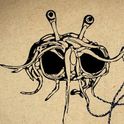Cooking chickpeas?
I soaked some chickpeas overnight but this morning looks absolutely crazy. Can I just put my presoaked chickpeas in the slow cooker, or are they like some other beans where they have to boil properly to be easily digestible? I don't know what I'm going to make with them yet, maybe hummus, maybe just fry them in bacon fat with lentils for crunchy rice topping... don't know. Just felt like I need to eat chickpeas.
There are so many contradictory resources online, I thought I would come here for proper know how. Any sources you recommend for cooking dry beans and peas like chickpeas?
14 Comments
Pulses are not all 'toxic' but do all contain lectins - which are inflammatory and so can be problematic for people in today's society who are all suffering (often chronic) inflammation on some level! Soaking or rinsing to death helps reduce the lectins and make digestion easier!
And yes, they do swell like mad! I ALWAYS make too many! :'D
There is only so much hummus a girl can eat, so I've been tossing the cooked chickpeas in with everything, from fried rice (tastes amazing) to baked apple rhubarb mush (less successful). I'm going to try oven roasting some today, but that still leaves me with two cups left... hmmm, what to eat for lunch that has chickpeas in it but isn't too strong on the peas? They are hard to digest when the body's not use to eating them, so I don't want them to be the star of the dish. Not yet anyway. Who would have thought dried chickpeas could be so yummy, worlds better than slimy tinned stuff?
Next question about the initial cooking - some resources say it must be cooked with salt others say never, ever add salt at the beginning as it makes it difficult to chew. Is this because adding salt increases the boiling temp enough to make the peas cook differently, so different places, stoves and styles of cooking will produce these different results? Or does the salt react with the peas?
If you want something less mushy, falafel are incredibly easy to make, and you can bake them if you aren't really into deep frying things.
Also, I saw a recipe on the Guardian website that even has a recipe for chocolate cake made with chickpeas - worth a try i suppose?
http://www.theguardian...
As for initial cooking, almost everyone I know who cooks (family) and other sources online say that adding salt to the cooking liquid can make the chickpeas a bit tougher (same with lentils), best to wait until after they're cooked.
When I checked on the chickpeas this morning, the 1/3 cup of peas had grown to 4 cups of peas and overflowing my soaking container. Is it normal for them to grow this much? I expected about 1 to 1.5 cups, two at the most. Anyway, been boiling 20 min and still hard as gravel. If they aren't done in another 20, I'll have to turn them off and see if I can finish cooking them this afternoon.
Also, when soaking chickpeas, adding some baking soda does help the beans absorb water a bit more readily.
Not all lectins are harmful, and the ones that are can be mitigated through proper cooking and preparation. People are most at risk of complications when trying to consume these foods raw or undercooked.
As far as I'm aware, chickpeas do not pose a great risk - I would recommend this page which contains summaries and abstracts of studies on various legumes for lectin content and toxicity. http://allallergy.net/fapaidfind.cfm?cdeoc=2231


